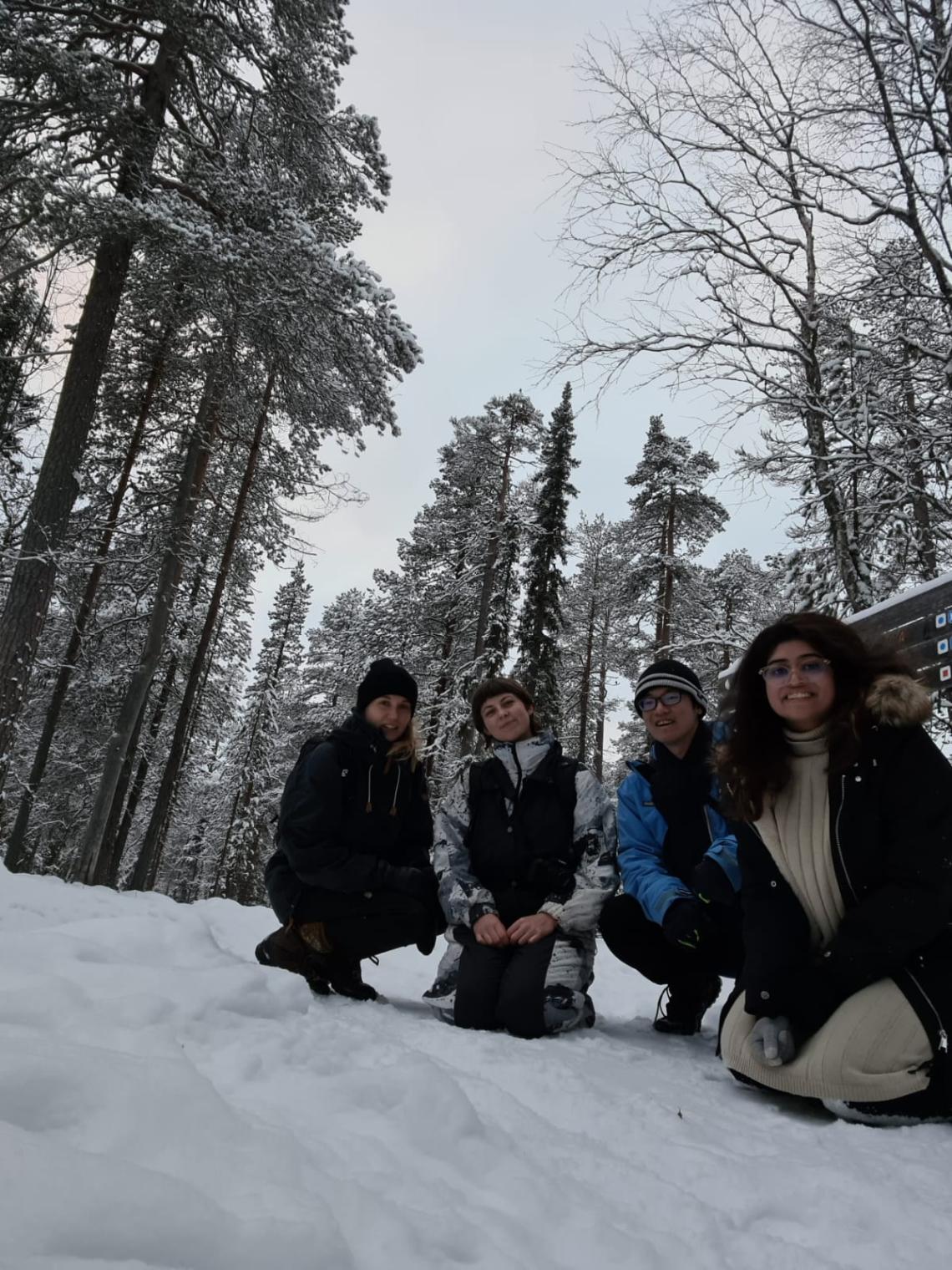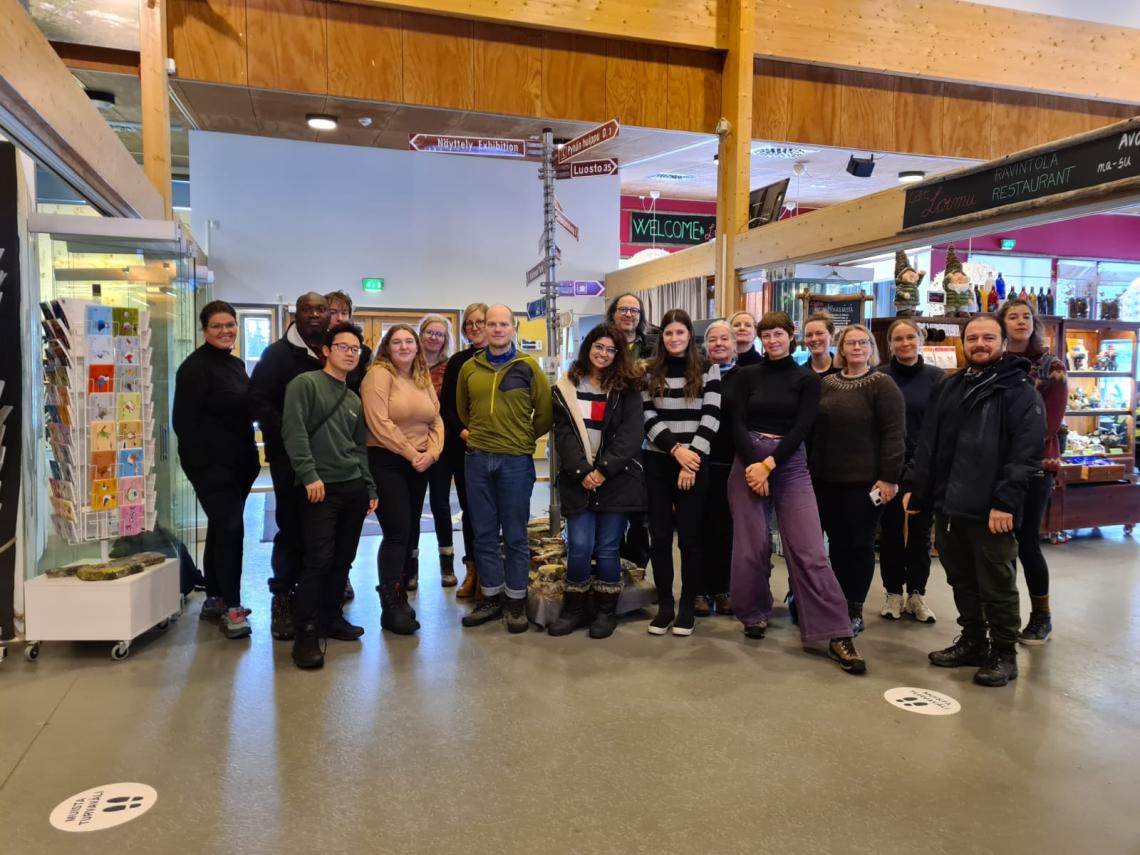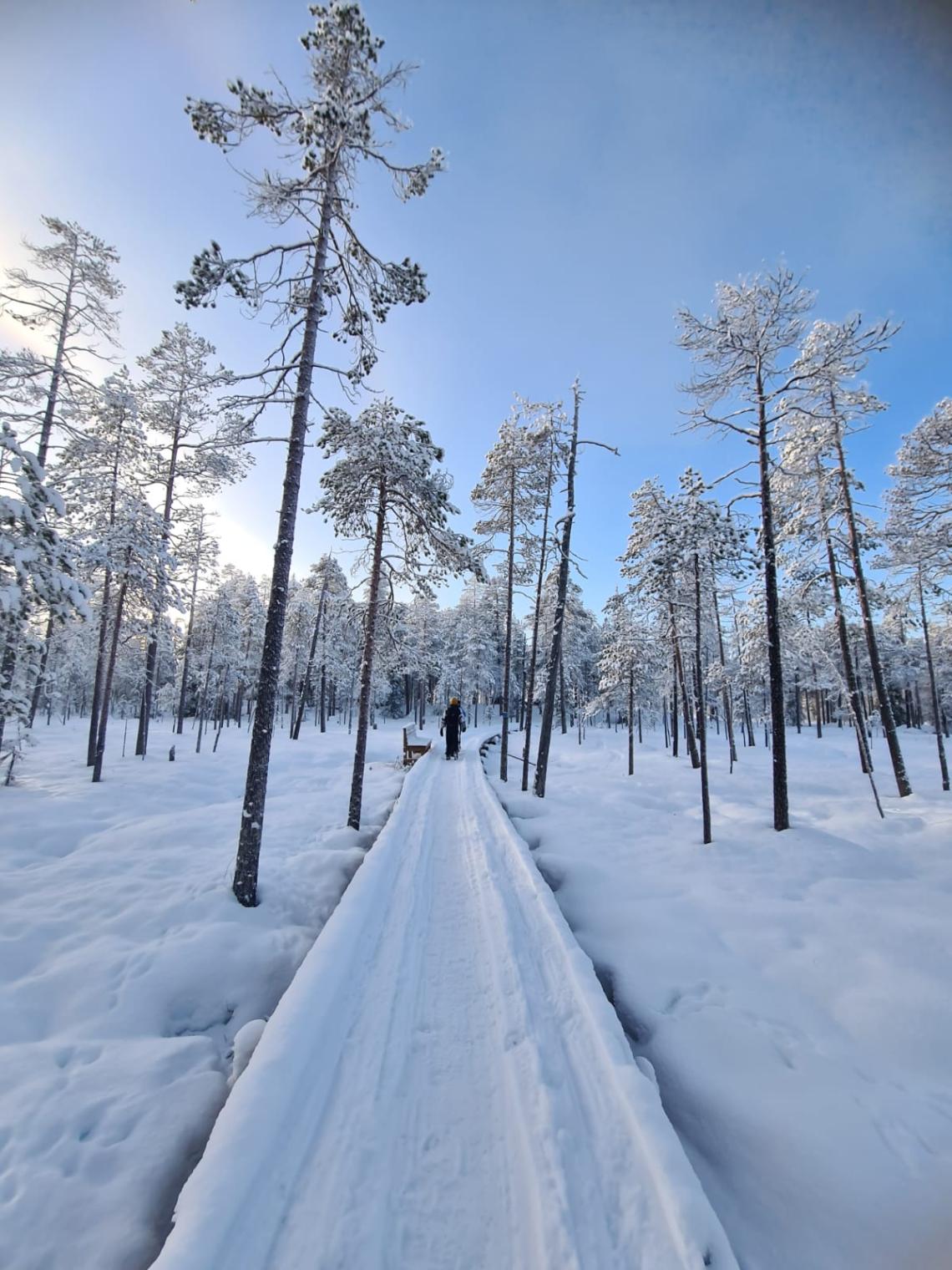Riya Rajesh shares her story
I went on the Northern Tourism in Practice graduate field course organized by the University of Arctic from October 30 to November 5, 2023. The course is a collaboration between seven partner universities:
- UiT the Arctic University of Norway,
- Umeå University,
- University of Oulu,
- University of Lapland,
- University of Iceland,
- Nipissing University
- and VIU.

With very limited knowledge of Arctic landscapes, I wanted to learn more when the opportunity was introduced to our class in October 2022.
Dr. Suzanne de la Barre leads the program at VIU and being her student in my first year of the Master of Arts in Sustainable Leisure Management program allowed me to experience this optional – but greatly beneficial – course. It became a gateway to immerse myself in the complexity of Arctic tourism.
The fact that there might be an opportunity to get funded to attend the field course at the University of Lapland motivated me to get through the first two online modules.
Key takeaways
The first remote course, Sustainable Tourism Development in Northern Environment, addresses tourism in the circumpolar north through a societal lens. It focuses on pressing global concerns such as climate change and globalization, and related aspects of governance. The second online course, Northern Tourism: Performances and Experiences, connects tourist experiences and their impact within northern communities. These include host-guest relations, creation of tourism experiences and environmental impacts. The online courses were hosted by the University of Oulu and the University of Iceland. The field course that followed was hosted by the University of Lapland in Rovaniemi, Finland.
During my online learning, I gained insight into concepts such as power dynamics, governance, sustainability and seasonal tourism in Arctic regions. I was already using some of these concepts in my classes and what stood out was how exploring these topics helped me identify similarities and differences between Arctic and non-Arctic regions. It highlighted how socio-economic factors, environmental concerns and Indigenous perspectives intersect. This comparison broadened my understanding of how development, conservation and community involvement play out in remote and culturally important regions.
The field course prompted us to analyze the evolving landscape of tourism considering challenges such as the climate emergency and the aftermath of the COVID-19 pandemic. We examined how to develop a sensitive approach towards engaging with nature-based tourism in northern regions. We also looked at effectively communicating research discoveries. Before the trip, we focused on understanding sensitive approaches, how to use digital storytelling and individual development plans. These are important lessons because they inform responsible and sustainable practices in Arctic tourism. They also encourage a balanced approach that respects cultural heritage, mitigates environmental impact and fosters meaningful tourist experiences. This is key to preserving the Arctic’s unique landscapes and cultures for generations to come.

My field experience at Pyhä National Park
Pyhä National Park is about an hour’s drive from Rovaniemi in Finland. Rovaniemi is a small and cozy town that is known for being the home of Santa Claus. It is one of the cities that the Arctic Circle “line” passes through.

My experience went beyond the confines of conventional learning (especially in the Finnish post-dinner sauna culture!). Spending moments with professors and peers at various stages of graduate work ignited rich conversations.
Exploring the park’s breathtaking beauty became a personal odyssey as I hiked, each trail unveiling panoramas that whispered tales of wilderness. Interacting with nature was an enchanting experience. I saw reindeer farms and curious Siberian jays, which perch on outstretched palms in pursuit of food. Witnessing a halo encircling the sun added a touch of celestial wonder to the landscape, a sight that etched itself into my memory.
My group and I created a video narrative that showed the voyage of a tourist initially seeking social media content, only to realize how interconnected humans and the natural world are.
If you adore the outdoors and new adventures, this field course is perfect. It offers a unique learning experience that’s absolutely worthwhile.
Related Posts
Got an article idea for the blog? Email students@viu.ca.



